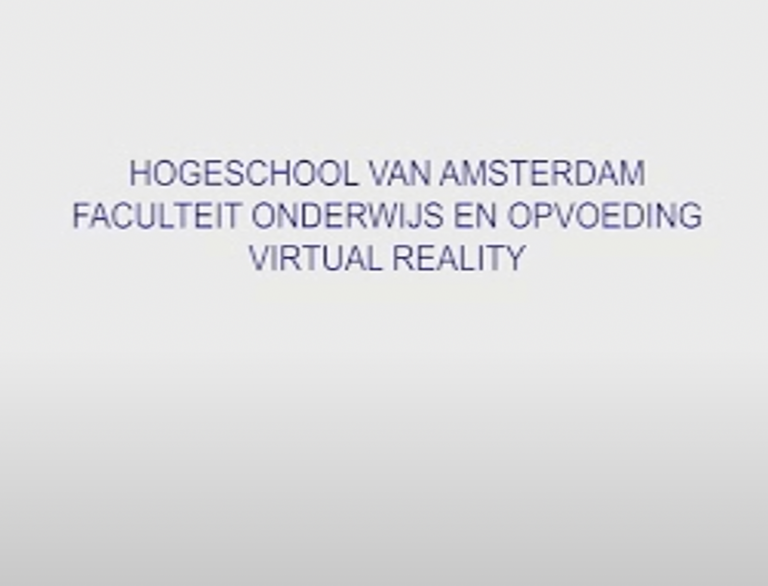In the summer of 2017, we started a collaboration with the Media College Amsterdam (Practoraat ‘Het nieuwe kijken’) from a Grassroot program. We wanted to make a (first) start with the creation of a beautiful collection of VR teaching materials, while the students of the Mediacollege learn to act in VR experiences thanks to this project. The first scenarios were written in collaboration with teacher trainers Aad Sinke (Cluster Talen), Sultan Göksen (Cluster Social Subjects), Charlotte Cannegieter (Cluster Exact) and Team ICTO FOO. In 2019, in collaboration with the knowledge center of FOO, a set of new productions followed from the Urban Education spearhead funds aimed at collaborating with parents in the metropolitan context (PO). In addition to the director of the knowledge center Ron Oostdam, teachers Adri Menheere, Robert van Mulligen and Anneke van der Linde (all Pabo) also worked intensively on this. This led, among other things, to a publication that appeared in October 2021 in the magazine for teacher educators (VELON). You can read the summary here. Hanneke Theelen (Fontys) wrote her thesis in 2021 on the use of class simulations during teacher training.
The target? Creating more authentic experiences for student teachers. In this way we want to prepare them even better for professional practice. Learning to observe, what does your attention go to? Using VR teaching materials (lesson observations) for generic themes in areas such as didactics, class management and conversation skills. Experiencing the group dynamics (really being part of a class, being able to assume the role of a student, feeling how tensions arise) constitutes an essential difference with the existing 2d films. Experiencing the consequences of different choices also plays an important role in this. Do you greet someone who is late or not? What happens to the course of your lesson if you pay too much or too little attention to something?
Of course we hope that the database will continue to grow and we are exploring the possibilities of cooperation with other educational institutions. We certainly received many positive reactions at the 2018 SURF Education Days and the 2019 VELON Congress. Our project also won 1st prize in the Education Challenges (collaboration category) at the 2019 HvA Education Conference! Rector Geleyn Meijer: ‘You combine technology with curiosity and you enter into this together because you believe that something new can be created, without knowing exactly where it is. That curiosity characterizes us and you shape it in a very practical way.’ See also the video on the right. The following didactic advantages of VR experience compared to existing educational resources are described in the literature[1]:
– making new situations accessible
– experiencing fraught situations,
– learning from experts,
– be present without disturbing,
– actively observing,
– learn together and from each other,
– relive and reflect
